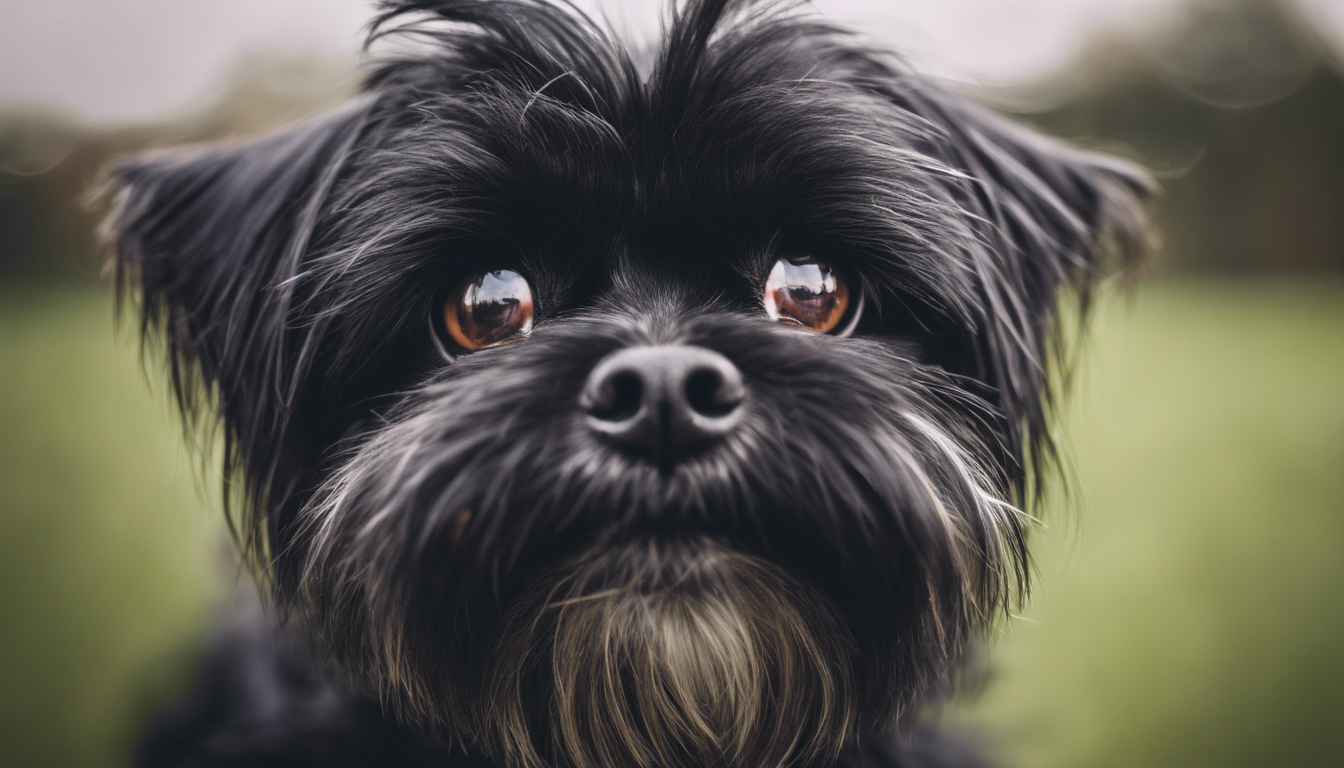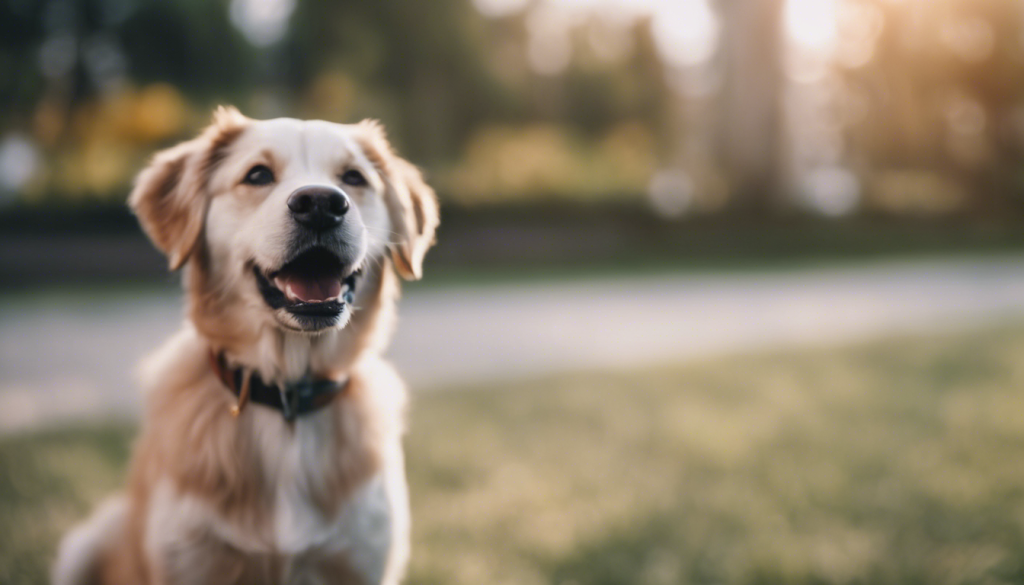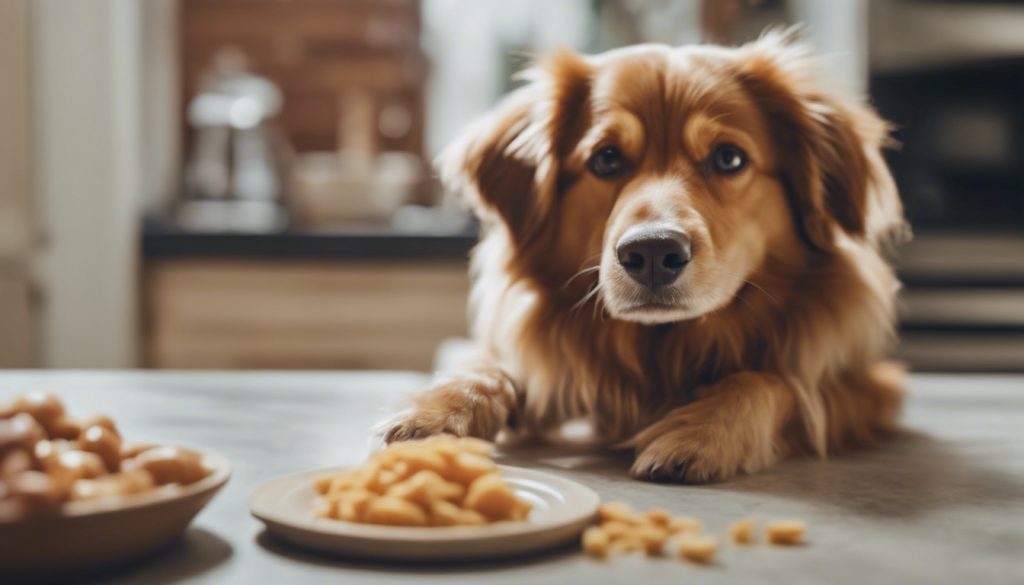Affenpinscher

History and Origin of the Affenpinscher
The Affenpinscher has a storied history that transports us to 17th-century Germany, where these plucky little dogs originally earned their keep by serving as ratters in stables, shops, and homes. The breed’s name, which translates amusingly to “monkey terrier” in German, hints at their mischievous and intelligent disposition, combined with a terrier-like tenacity. It is believed that they were developed from larger terrier and Schnauzer breeds to create a more diminutive version nimble enough to chase down pesky rodents with great enthusiasm.
Over time, the Affenpinscher’s role in society shifted from that of a working dog to a beloved companion of the bourgeois. Their expressive faces, often highlighted with a distinguished beard and mustache, charmed their way into the hearts and laps of many, including ladies of the time who found them to be perfect lap warmers and endearing companions. These features, so evocative of human expressions, only solidified their status as the “little monkey dog” and endeared them further to their human counterparts.
As they moved from the stables to more refined settings, their breeders began to select for qualities that made them more suited for this new lifestyle, without compromising their spunk and spirit. It is this rich blend of personality, intelligence, and boldness that carried the Affenpinscher across borders, from Germany to France and beyond, eventually crossing the ocean to the United States where they have continued to capture the affections of dog lovers.
The breed’s arrival in the U.S. marked the beginning of their formal acknowledgement, with their introduction into the American Kennel Club in 1936 under the Toy Group. Since then, the Affenpinscher has held a humble, yet steadfast presence in the toy dog realm, enchanting people with their distinct look and lively character. Through their journey from European stables to the hearts of dog enthusiasts worldwide, Affenpinschers remind us of the enduring bond between dogs and humans, as well as the rich histories we share with our four-legged friends.
Character Traits and Personality
Embodied in the small frame of the Affenpinscher is a personality that is as bold and vibrant as dogs many times its size. These toy dogs pack a punch when it comes to their assertive and feisty demeanor, often acting as though they’re unaware of their diminutive stature. With the heart of a lion, they’re known for their courage, sometimes verging on the brink of temerity when they confront other animals, especially those larger than themselves.
The Affenpinscher’s appeal is not only in its daring nature but in its playful and fun-loving spirit. They delight in entertaining their humans and are known for their clownish behavior, which keeps their families amused and in good spirits. Despite their love for play, they’re surprisingly intelligent and can be very inquisitive, traits that make them wonderful companions but may also lead them into mischief if they aren’t mentally stimulated.
It is essential to understand the Affenpinscher’s inherent stubbornness, which is a prominent feature of their character. This stubborn streak can make training a challenge but certainly not impossible. It requires patience, consistency, and a sense of humor from their owners. Their independence is a trait that affords them a unique personality but may be misunderstood by those who expect a more compliant or passive dog.
These “little monkey dogs” are not only animated but are also affectionate and loyal to their family members. They form strong bonds with their owners and are known to be quite protective. In their minds, they’re lion-hearted guardians, and they will not hesitate to stand their ground. This means they can be suspicious of strangers and may bark to alert you of someone’s approach. Early socialization is key to help them become well-adjusted adults who can discern between normal and questionable situations.
Though small, the Affenpinscher does possess energy to burn. They don’t require vast amounts of exercise, but regular play sessions and walks are necessary to keep them satisfied and healthy. They excel at and enjoy activities like fetch and agility training, which also serve to keep their minds sharp and engaged.
While their loyalty and affectionate nature make the Affenpinscher a delightful companion, their strong personality may not be a perfect fit for everyone. Prospective owners should think whether they have the time, patience, and energy to devote to a dog who will demand attention, engagement, and above all, respect for their big-dog character in a small-dog body. But for those who appreciate the nuances of this spirited breed, the rewards are ample—a life filled with laughter, love, and a touch of monkey business.
Health and Care Considerations
Caring for an Affenpinscher requires an understanding of their specific needs. As charming as they are, these dogs may face certain health concerns that prospective and experienced owners alike should be aware of. One should pay special attention to their respiratory system, as their short snouts can make them prone to brachycephalic syndrome, which can affect their breathing. Regular veterinary checkups can ensure any breathing issues are addressed promptly.
Additionally, Affenpinschers can be at risk for common canine ailments such as hip dysplasia, patellar luxation (slipping kneecaps), and dental problems due to their small mouths. To promote good oral health, it is recommended to brush their teeth regularly and provide suitable toys that help in cleaning their teeth naturally. Proper dental care can prevent many health issues and potential tooth loss.
When it comes to grooming, these little dogs come with a wiry coat that requires consistent care. Weekly brushing is essential to prevent matting and to keep their coat looking its best. The hair around their face will require extra attention to avoid irritation and infections. Some owners opt to take their Affenpinschers to professional groomers every couple of months for a trim, which can be a practical solution to maintaining their distinctive appearance.
Their diet is another vital aspect of care. A well-balanced diet suited for small breeds with high energy especially important for the Affenpinscher’s wellbeing. Overfeeding can lead to weight gain, which for such a small frame, can put added strain on their joints and internal organs. Consultation with a veterinarian can help determine the best feeding regimen and portion sizes. Don’t forget to factor in treats and snacks when considering their daily calorie intake!
Exercise is fundamental for the Affenpinscher’s physical and mental health. Despite their size, they have plenty of energy to expend. Daily walks combined with playtime help to keep them fit and stave off boredom. Interactive toys can be particularly effective in keeping their minds engaged, especially when indoor activities are necessary due to their sensitivity to extreme weather conditions.
Lastly, owners should note that the Affenpinscher’s bold and curious nature could lead them to harm’s way. A secure, fenced area where they can explore without the risk of wandering off is recommended. Indoors, precautions should be taken to remove hazardous items they could chew or swallow.
With attentive care, routine health maintenance, and a nurturing environment, Affenpinschers can enjoy a high quality of life and provide unending joy and companionship to their human families. Whether snuggling up on the couch or performing their comedic antics, the Affenpinscher’s well-being is an investment that pays off in copious amounts of affection and character.
Training and Socialization Requirements
The Affenpinscher’s spark and self-assurance definitely show up during training sessions. It’s essential that owners approach teaching this bright, but sometimes willful, breed with a firm yet positive hand. They respond well to positive reinforcement techniques such as praise, play, and treats. Harsh methods will not work and will only damage the trust and bond you are looking to build. Starting obedience training early is important, and consistency is the key. Due to their intelligence, Affenpinschers are quick to learn but can also quickly pick up bad habits if not guided properly.
Socialization is another critical aspect of raising a well-rounded Affenpinscher. Exposure to various people, environments, sounds, and experiences during their formative weeks and months can make all the difference in how they perceive the world as they grow. Properly socialized Affenpinschers are more likely to become confident and sociable dogs, capable of handling new situations with grace. Puppy classes, park visits, and controlled gatherings with friends and their pets can provide excellent socialization opportunities.
Because of their terrier heritage, Affenpinschers have a natural drive to chase and explore. It can be beneficial to channel this instinct into games and activities that stimulate both mind and body. Despite their small stature, they excel in dog sports such as agility, obedience, and rally, which not only give them physical workouts but also engage their acute minds. These activities also reinforce the bond between the dog and the owner—an integral part of any training routine.
One should also be aware that their high-spirited nature might make them a little harder to housebreak. Consistency with potty training routines is essential. Be prepared for this process to take a bit of time, and remember that patience will be your greatest virtue when working with an Affenpinscher. Crate training can be an effective tool during this process, providing them with a safe space they can call their own while helping to establish a routine.
Lastly, due to their protective instincts, it’s important for Affenpinschers to learn what is considered normal human interaction, like hugging or shaking hands, and what is truly a threatening behavior. Without proper training and socialization, they may react unnecessarily to common social gestures. Teaching them cues like “quiet” or “leave it” will come in handy to manage their sometimes overzealous watchdog tendencies. And always remember to reward them for displaying the appropriate behavior!
Training an Affenpinscher requires a blend of determination, patience, and creativity. Their education is ongoing, extending beyond the puppy years and into their mature lives. For those who relish the challenge and enjoy the engagement, training this intelligent and lively breed can be an immensely rewarding endeavor, resulting in a well-behaved and loving companion who’s as much fun to live with as they are to train.







